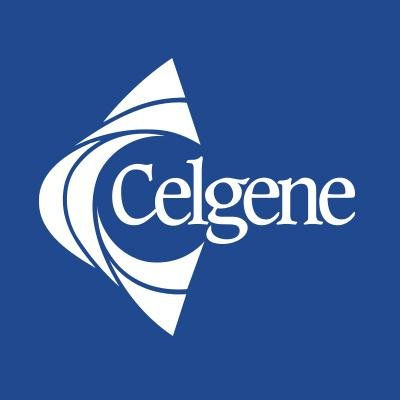预约演示
更新于:2025-05-07
IKZF1 x CRBN x IKZF3
更新于:2025-05-07
关联
6
项与 IKZF1 x CRBN x IKZF3 相关的药物作用机制 CRBN调节剂 [+2] |
原研机构 |
最高研发阶段批准上市 |
首次获批国家/地区 美国 |
首次获批日期2013-02-08 |
作用机制 CK1α抑制剂 [+3] |
在研机构 |
原研机构 |
非在研适应症 |
最高研发阶段批准上市 |
首次获批国家/地区 美国 |
首次获批日期2005-12-27 |
作用机制 CRBN调节剂 [+3] |
在研机构 |
原研机构 |
非在研适应症- |
最高研发阶段临床2期 |
首次获批国家/地区- |
首次获批日期1800-01-20 |
1,614
项与 IKZF1 x CRBN x IKZF3 相关的临床试验NCT06461988
An Open-Label, Non-Randomized, Phase II Study to Study the Efficacy of Talquetamab (JNJ-64407564) and Lenalidomide as Post Stem Cell Transplant Maintenance in Multiple Myeloma (OPTIMMAL)
Multiple myeloma (MM) is a heterogenous plasma cell malignancy characterized by clonal proliferation of plasma cells and organ damage. Autologous transplantation with high dose chemotherapy is the standard of care in frontline treatment of eligible patients with MM.
开始日期2025-11-01 |
申办/合作机构  Stanford University Stanford University [+1] |
NCT06932562
A Randomized, Open-Label, Controlled Phase 3 Study of Comparing Daratumumab, Lenalidomide and Dexamethasone Induction Followed by Linvoseltamab Versus Continued Daratumumab, Lenalidomide, and Dexamethasone in Newly Diagnosed Transplant Ineligible Multiple Myeloma Patients
This study is researching an experimental drug called linvoseltamab. The study is focused on participants with newly diagnosed multiple myeloma (NDMM) who are ineligible for autologous stem cell transplantation (transplant-ineligible).
The main purpose of this study is to compare the effect and safety of linvoseltamab with the effect and safety of the standard treatment.
The main purpose of this study is to compare the effect and safety of linvoseltamab with the effect and safety of the standard treatment.
开始日期2025-09-01 |
申办/合作机构 |
100 项与 IKZF1 x CRBN x IKZF3 相关的临床结果
登录后查看更多信息
100 项与 IKZF1 x CRBN x IKZF3 相关的转化医学
登录后查看更多信息
0 项与 IKZF1 x CRBN x IKZF3 相关的专利(医药)
登录后查看更多信息
106
项与 IKZF1 x CRBN x IKZF3 相关的文献(医药)2025-06-01·Developmental Biology
Cereblon E3 ligase complex genes are expressed in tissues sensitive to thalidomide in chicken and zebrafish embryos but are unchanged following thalidomide exposure
Article
作者: Reeves, Jessica ; Erskine, Lynda ; Vargesson, Neil ; Fraga, Lucas Rosa ; Mahony, Chris
2025-03-27·Journal of Medicinal Chemistry
Monoselective Histone Deacetylase 6 PROTAC Degrader Shows In Vivo Tractability
Article
作者: Olaoye, Olasunkanmi O. ; Moriggl, Richard ; de Araujo, Elvin D. ; Sedighi, Abootaleb ; Abdallah, Diaaeldin I. ; Yu, Wenlong ; Hariri, Pearla ; Pölöske, Daniel ; Gunning, Patrick T. ; Garcha, Harsimran K.
2025-03-04·Expert Opinion on Therapeutic Targets
Can we develop effective direct or indirect inhibitors of transcription factors? On the clinical evolution of protein degraders for multiple myeloma therapy
Review
作者: Podar, Klaus ; Aksoy, Osman ; Meli, Rajeshwari ; Slade, Dea ; Vallet, Sonia
38
项与 IKZF1 x CRBN x IKZF3 相关的新闻(医药)2025-04-13
·精准药物
靶向蛋白质降解TPD作为一种新兴的治疗手段,正在从基础研究走向临床应用,为药物开发带来了全新的思路和策略。本文将对发表在Nature Reviews Molecular Cell Biology上的一篇综述文章《Targeted protein degradation: from mechanisms to clinic》进行解读,深入了解这一领域的最新进展和未来方向。一、靶向蛋白质降解的原理与机制TPD的核心在于利用小分子药物诱导特定蛋白质的降解。其最常见的形式是通过小分子介导的泛素化过程,将目标蛋白质与泛素连接酶联系起来,从而标记目标蛋白质进行降解。这一过程主要依赖于泛素-蛋白酶体系统(UPS),其中E3连接酶起着关键作用,它们能够识别并结合特定的蛋白质靶标,进而通过泛素化作用标记这些蛋白质,使其被蛋白酶体识别并降解。文章详细介绍了TPD的多种机制,包括自然存在的分子胶降解剂(molecular glue degraders)和人工设计的PROTAC(Proteolysis Targeting Chimeras)。分子胶降解剂是一类单价小分子,它们能够结合E3连接酶或目标蛋白质,促进E3连接酶与目标蛋白质之间的新相互作用,从而导致目标蛋白质的降解。而PROTAC则是一种双功能分子,包含两个不同的结合基团,一个用于结合E3连接酶,另一个用于结合目标蛋白质,通过连接这两个基团,PROTAC能够将E3连接酶和目标蛋白质拉近,从而诱导目标蛋白质的降解。图1 PROTACs和分子胶降解剂诱导目标蛋白降解的模式二、自然存在的靶向蛋白质降解机制自然界中已经存在一些分子胶降解剂,它们能够诱导蛋白质之间的相互作用,包括促进泛素连接酶与非天然底物的结合。例如,病毒能够劫持宿主的E3连接酶,通过小肽或蛋白质改变泛素连接酶的底物特异性,从而降解宿主的靶标蛋白质,增强病毒的感染性和病毒粒子的产生(图2a和2b)。此外,植物中的生长素(auxins)也能够作为一种分子胶,通过与E3连接酶复合体结合,诱导早期生长素响应蛋白的降解,从而调控植物的生长发育(图2c)。图2 生物分子诱导降解的自然方式示例三、靶向蛋白质降解的早期探索在药物研发领域,TPD的诞生标志着一种革命性治疗策略的出现。这一理念最早在2001年由Sakamoto团队提出,他们设计出首个蛋白水解靶向嵌合体(PROTAC)分子——Protac-1。这一分子由两部分组成:一端是结合目标蛋白MetAP-2的配体,另一端是招募SCF泛素连接酶的肽段,中间通过连接子相连。尽管Protac-1在细胞裂解液中成功诱导了MetAP-2的降解,但由于肽段稳定性差且难以穿透细胞膜,其应用受到了限制。真正的突破发生在2008年,Crews课题组开发了第一个全小分子PROTAC。他们利用雄激素受体(AR)的配体与MDM2抑制剂通过化学连接子结合,成功在细胞内实现了AR的降解。这一成果证明了小分子PROTAC的可行性,但也暴露了早期PROTAC的局限性,如分子量过大和细胞渗透性差等问题。随后的研究聚焦于优化E3泛素连接酶的配体。2012年,基于HIF-1α羟基脯氨酸结构的VHL配体被开发出来,显著提升了PROTAC的效率和特异性。与此同时,沙利度胺及其衍生物被证实可高效结合CRBN,为PROTAC设计提供了另一类重要工具。这些进展使得PROTAC技术逐渐成熟,并催生了如ARV-110和ARV-471等进入临床试验的候选药物。早期的探索不仅解决了PROTAC的分子设计难题,还为后续的分子胶降解剂和其他新型降解技术奠定了基础。如今,TPD已成为药物研发的热点领域,为癌症、神经退行性疾病等难治性疾病的治疗带来了新的希望。四、意外发现的蛋白质降解剂:从偶然到突破在靶向蛋白质降解(TPD)的发展历程中,许多关键突破并非来自精心设计的实验,而是源于科学探索中的意外发现。其中最著名的例子莫过于沙利度胺(thalidomide)及其衍生物的作用机制解析。这种上世纪50年代作为镇静剂使用的药物,因其严重的致畸性被撤市,却在几十年后意外成为多发性骨髓瘤的革命性疗法。2010年,科学家们发现沙利度胺及其衍生物(如来那度胺、泊马度胺)能够结合E3泛素连接酶CRBN,并诱导转录因子IKZF1和IKZF3的降解。这一发现不仅解释了这类药物的治疗机制,也揭示了其致畸性的根源——它们同时会降解发育关键蛋白SALL4。这种"分子胶"的作用模式,即小分子通过重塑蛋白质相互作用界面来诱导靶蛋白与E3 连接酶的结合,为TPD领域开辟了新方向。另一个意外发现的典型案例是抗癌药物indisulam。这款最初作为细胞周期抑制剂的磺胺类药物,后来被证明能够招募DCAF15连接酶来降解剪接因子RBM39。结构生物学研究显示,indisulam在DCAF15和RBM39之间充当"化学桥梁",稳定两者间的相互作用。这种机制与经典的分子胶有所不同,展现了小分子诱导蛋白质降解的多样性。最令人惊讶的发现或许要数激酶抑制剂CR8的故事。这个CDK抑制剂被意外发现能够介导细胞周期蛋白K的降解,但机制却与传统认知大相径庭——CR8并不直接连接E3连接酶和靶蛋白,而是通过改变CDK12的构象,使其意外获得与DDB1结合的能力。这种非典型的降解模式再次拓展了人们对分子胶的理解边界。五、新型分子胶降解剂的发现近年来,分子胶降解剂的发现已成为靶向蛋白降解领域的重要研究方向。沙利度胺衍生物和Indisulam等分子胶降解剂最初是通过回顾性研究被偶然发现的,这促使科学家们开始系统性探索新型分子胶,以扩大潜在靶点的覆盖范围。在早期理性设计分子胶的案例中,研究人员通过增强β-catenin与其E3连接酶SCFβ-TrCP的相互作用,开发出小分子NRX-1933(图3a),该化合物能够绕过β-catenin降解所需的磷酸化依赖途径。经过进一步优化得到的NRX-252114显著提高了对特定磷酸化β-catenin的招募和泛素化效率,展现了分子胶技术在靶向致癌蛋白方面的潜力。另一种重要策略是对已知具有分子胶活性的E3连接酶(如CRBN)的配体进行化学修饰。通过对CRBN的戊二酰亚胺配体进行结构改造,研究人员成功开发出靶向IKZF2转录因子的高效降解剂NVP-DKY709和ALV系列化合物。这些经过结构优化的分子胶不仅展现出高度选择性,还能够区分高度相似的蛋白家族成员,其中部分候选药物已进入临床开发阶段。与此同时,沙利度胺衍生物的应用范围也在不断扩展,通过表型筛选发现的GSPT1靶向降解剂,以及优化后的来那度胺衍生物CC-92480,都显示出分子胶技术在靶向非锌指蛋白方面的广阔前景。随着研究的深入,新型筛选技术为分子胶发现提供了强大支持。研究人员开发了多种创新方法,包括利用基因编辑细胞系结合表型筛选、整合大规模小分子与遗传依赖性数据,以及应用DNA编码化合物库等高通量技术。这些技术进步不仅加速了新型分子胶的发现,也为拓展可成药靶点空间提供了新思路。当前,分子胶降解剂的研究正处于快速发展阶段,其在疾病治疗中的应用潜力正在被不断发掘,未来有望为肿瘤等难治性疾病提供更精准的治疗策略。六、靶向降解的变体尽管TPD领域正在追求的大多数机制主要集中在新相互作用的诱导上,但将它们视为单一机制是不正确的。事实上,这个概念存在许多变体,导致不同的生物学和临床效果。内源性小分子诱导的核受体新相互作用:核受体是一类结构相似的转录因子,其活性受配体调控。部分核受体(如视黄酸受体α、糖皮质激素受体和雌激素受体)在配体结合后会通过蛋白酶体途径降解。虽然这些配体并非传统意义上的分子胶,但它们能诱导核受体构象变化,暴露出保守的疏水裂隙,进而被核共激活因子(NCOA)识别并激活下游转录。然而,该疏水裂隙也可作为一种遮蔽型降解信号(degron),被HECT家族E3泛素连接酶UBR5识别,从而与NCOA竞争结合核受体,促使其降解。这一过程中,核受体的降解信号受到双重屏蔽:一方面在非活性状态下受螺旋12的位阻保护,另一方面在配体结合后被NCOA直接占据。选择性雌激素受体降解剂(SERD)是一类通过不同机制靶向降解雌激素受体(ER)的核受体配体,用于治疗HER2阴性、激素受体阳性乳腺癌。氟维司群作为经典SERD,其结构在雌二醇骨架上引入疏水性长链,通过系统性化学修饰优化而成。尽管多种SERD被开发,但直至2023年1月依拉司群才成为第二个获批的SERD。SERD研发成功率较低,部分原因在于其ER拮抗和降解机制复杂。例如,氟维司群的主要抗雌激素效应可能并非直接降解ER,而是显著抑制ER在细胞核内的迁移。研究发现,不同结构的SERD通过不同途径降解ER:丙烯酸侧链类SERD依赖SUMO化修饰和E3连接酶RNF111,而碱性侧链类则通过UBR5介导的类似雌二醇的降解途径。SUMO化修饰可能使ER被RNF111识别并进一步泛素化,但其临床意义仍需深入研究。小分子共价降解剂:近年来,共价配体技术为靶向蛋白降解(TPD)领域提供了新的策略。这类分子能够通过共价或可逆共价反应直接修饰泛素-蛋白酶体系统(UPS)的组分,从而改变蛋白相互作用网络,或作为PROTAC的招募手柄。例如,天然产物宁宾内酯(nimbolide)被发现通过共价修饰E3连接酶RNF114的C8半胱氨酸残基,干扰其底物识别能力。基于这一机制,研究人员将宁宾内酯改造为PROTAC的E3配体,成功靶向降解转录调控因子BRD4。共价片段筛选(FBLD)技术进一步推动了共价降解剂的开发。通过筛选具有广泛半胱氨酸反应活性的共价片段,研究人员发现了与E3连接酶(如DCAF16)结合的活性位点,并将其与可逆抑制剂(如靶向BRD4或FKBP12的分子)偶联,构建出新型PROTAC。共价修饰E3连接酶相比传统可逆PROTAC可能具有更持久的活性,因其配体驻留时间与E3的自然周转时间相耦合。目前,针对DCAF1、DCAF11、RNF116等E3连接酶的共价降解剂已被陆续报道。此外,在筛选靶向BRD4的分子胶时,研究人员意外发现一类基于JQ1(BET溴结构域抑制剂)的共价分子能够招募CUL4DCAF16至BRD4的第二溴结构域(BRD4BD2),形成“模板辅助共价修饰”复合物。冷冻电镜结构解析表明,DCAF16的第58位半胱氨酸是共价修饰的关键位点。另一项研究则报道了双功能分子IBG1,它能同时结合BRD4的两个溴结构域,诱导构象变化并形成DCAF16的新底物界面(图3b)。值得注意的是,这些分子最初在基于DCAF15配体的PROTAC筛选中被发现,后通过CRISPR筛选证实其依赖DCAF16发挥作用。这些研究不仅揭示了共价降解剂在靶向“不可成药”蛋白方面的潜力,也强调了蛋白-蛋白相互作用的复杂性。未来需进一步优化共价修饰策略,并谨慎验证降解机制,以推动其向临床转化。通过小分子诱导聚合降解:近年来,研究发现某些小分子可通过诱导靶蛋白聚合,进而引发泛素化-蛋白酶体降解。例如,小分子化合物BI-3802能诱导B细胞淋巴瘤蛋白6(BCL6)形成聚合物而非简单聚集。通过荧光标记和电镜观察,研究人员发现BI-3802处理后,BCL6首先形成荧光焦点并逐渐消失,进一步结构解析揭示该分子在BCL6的BTB结构域间形成对称的新相互作用界面,促使同源二聚体自聚合(图3b)。这种聚合状态增强了E3连接酶SIAH1/2的招募,最终导致BCL6被降解。类似的机制也见于急性早幼粒细胞白血病(APL)的治疗。APL由PML-RARA融合基因驱动,而三氧化二砷(ATO)和全反式维甲酸(ATRA)通过不同途径降解该致癌蛋白:ATO诱导PML和PML-RARA寡聚化,促进其与泛素结合酶UBC9相互作用并降解;ATRA则通过激活RARA的核受体功能(如前述激素受体降解机制),使其暴露降解信号而被蛋白酶体清除。这些发现不仅揭示了蛋白聚合作为降解触发信号的新范式,也为开发针对难治性疾病的降解疗法提供了新思路。直接招募靶蛋白至蛋白酶体的降解新策略:传统上,靶向蛋白降解(TPD)依赖于泛素化标记,但最新研究探索了绕过泛素化、直接利用蛋白酶体降解的途径。一项突破性研究采用mRNA展示技术,筛选出能与蛋白酶体亚基PSMD2高亲和力结合的大环肽MC1(纳摩尔级结合力)。冷冻电镜结构解析显示,MC1结合在PSMD2的C端结构域与螺旋结构之间的独特区域,靠近26S蛋白酶体的底物通道入口。研究人员将MC1与高亲和力的BRD4配体(BET抑制剂)偶联,成功将BRD4直接招募至蛋白酶体,并实现其降解。这一策略突破了传统PROTAC依赖E3连接酶泛素化的限制,为靶向降解提供了全新思路,尤其适用于难以泛素化的靶点。未来,该技术可能拓展至更多疾病相关蛋白,推动蛋白降解疗法的创新。七、拓展E3连接酶在靶向蛋白降解中的应用目前,PROTAC技术主要依赖CRBN和VHL这两种E3连接酶,而能直接结合E3连接酶的小分子配体仍较为稀缺,限制了PROTAC对新连接酶的探索(图3c)。尽管CRBN和VHL在降解效率和速度上表现优异,但利用其他E3连接酶可能带来独特优势,例如:(一)组织特异性降解:通过选择仅在神经或造血系统表达的E3连接酶,可增强PROTAC的组织靶向性,减少脱靶效应。(二)亚细胞定位调控:核内或染色质结合的E3连接酶可用于精准降解转录因子等难成药靶点。近期研究已开始系统鉴定组织特异性E3连接酶及其配体,为拓展PROTAC应用奠定基础。然而,当前挑战在于如何高效发现特异性结合新E3连接酶的小分子。开发能系统性筛选“配体-连接酶”对的平台,将成为推动PROTAC临床转化的关键。图3 不同的分子机制导致底物募集以进行靶向蛋白质降解八、靶向蛋白降解的选择性与特异性小分子蛋白降解剂(如PROTAC和分子胶)的选择性受多种因素影响,包括:(一)E3连接酶与靶蛋白的结合特性:不同E3连接酶(如CRBN或VHL)会影响降解的靶标范围,且PROTAC与靶蛋白的结合亲和力并不完全决定降解效率。(二)三元复合物的形成与泛素化效率:有效的靶蛋白泛素化是降解选择性的关键。(三)组织特异性表达:靶蛋白和E3连接酶的组织分布可影响降解效果,例如VHL在血小板中低表达可减少BCL-XL靶向PROTAC的毒性。(四)亚型选择性设计:针对高度相似靶点(如CDK4/CDK6、BRG/BRM)开发亚型特异性PROTAC可进一步提高选择性。尽管分子胶和PROTAC通常被认为具有高度特异性,但研究发现基于CRBN的降解剂可能脱靶降解IKZF1或SALL4等蛋白,强调需通过靶向和无偏筛选全面评估脱靶效应。此外,降解选择性还受时间、动力学和底物竞争的影响,需在临床前研究中系统优化。九、临床观点尽管靶向蛋白质降解(TPD)领域已涌现出多种创新机制,但目前获得FDA批准的药物仍屈指可数。临床研发管线中的分子却展现出丰富多样性,如表1所示,尤其是针对IKZF1/3等靶点的分子胶降解剂(如CC-92480、CFT-7455等)已进入I/II期试验,其应用从血液肿瘤逐步拓展至实体瘤。PROTACs凭借模块化设计优势,在靶点覆盖上更为广泛,针对雄激素受体(ARV-110)、雌激素受体(ARV-471)及BTK(NX-2127)等靶点的候选药物正针对血液瘤、实体瘤和自身免疫疾病开展临床试验。沙利度胺类似物的成功案例为TPD提供了重要验证,但其胚胎毒性风险也警示着该技术的潜在挑战。分子胶虽具有优异的药代动力学特性,但发现过程仍依赖偶然性;而PROTACs虽设计灵活,却面临分子量大、组织靶向性不足等问题。耐药性机制(如CRBN突变、外排泵MDR1上调)和脱靶效应(如沙利度胺衍生物意外降解SALL4)成为临床转化的重要障碍。值得注意的是,常规动物模型对某些降解靶点不敏感,这增加了毒性评估的复杂性。TPD的独特优势在于"事件驱动"的药理学特性,但其治疗潜力仍受限于:某些疾病需要同时抑制通路活性;组织特异性递送效率不足;以及降解后可能触发的代偿机制。新兴应用领域如神经退行性疾病(靶向Tau蛋白)和感染性疾病(抗病毒BacPROTACs)正在拓展TPD的疆界,但需要开发更精准的降解策略。未来突破将依赖于E3连接酶工具箱的扩充、组织特异性递送技术的创新,以及对降解生物学更深入的理解。这一领域正站在从概念验证向全面临床获益转化的关键节点。表1 Clinical trials utilizing degrader molecules十、靶向蛋白质降解的未来展望靶向蛋白质降解(TPD)领域已展现出令人振奋的多样性,从传统的PROTACs和分子胶降解剂,到新兴的抗体靶向嵌合体(AbTACs)、自噬靶向嵌合体(AUTACs)和溶酶体靶向嵌合体(LYTACs)等技术不断涌现。尽管这些创新方法前景广阔,但近期进入临床开发的主流仍将是PROTACs和分子胶降解剂。分子胶降解剂因其分子量小、生物利用度高和效力强而独具优势,但其发现仍主要依赖偶然性,且结构-活性关系极为敏感,单个原子的改变就可能完全改变底物特异性。相比之下,PROTACs的模块化设计使其能够更系统地开发,但大分子量带来的药代动力学挑战仍需长期优化。值得注意的是,PROTACs的靶点多为已被传统方法靶向的蛋白,因此需要更强的临床优势证据。该领域的快速发展正在催生更广泛的邻近诱导药理学概念,包括调控转录/表观遗传的TCIPs、诱导蛋白磷酸化的PhosTACs、去泛素化的DUBTACs等。这些技术将小分子诱导邻近的应用从单纯的蛋白质降解扩展到更广泛的蛋白功能调控。未来,随着对天然降解机制的深入挖掘和人工智能等技术的应用,TPD有望突破现有"不可成药"靶点的限制,为癌症、神经退行性疾病等难治性疾病带来变革性疗法。正如来那度胺等已获批药物所展示的,即使偶然发现的降解剂也能为患者带来显著获益,这为TPD的未来发展提供了最有力的证明。全文链接:https://doi.org/10.1038/s41580-024-00729-9
蛋白降解靶向嵌合体
2025-02-12
·fda
On February 11, 2025, the Food and Drug Administration approved brentuximab vedotin (Adcetris, Seagen Inc., a subsidiary of Pfizer) in combination with lenalidomide and a rituximab product for adult patients with relapsed or refractory large B-cell lymphoma (LBCL), including diffuse large B-cell lymphoma (DLBCL) not otherwise specified (NOS), DLBCL arising from indolent lymphoma, or high-grade B-cell lymphoma (HGBL), after two or more lines of systemic therapy who are ineligible for autologous hematopoietic stem cell transplantation (auto-HSCT) or CAR T-cell therapy.Full prescribing information for Adcetris will be posted on Drugs@FDA. Efficacy and SafetyApproval was based on ECHELON-3 (NCT04404283), a randomized, double-blind, placebo-controlled trial enrolling 230 adult patients with relapsed or refractory LBCL who were ineligible to receive an auto-HSCT or CAR T-cell therapy. Patients were randomized 1:1 to receive brentuximab vedotin plus lenalidomide and rituximab (BV+R2) or placebo plus lenalidomide and rituximab (Pbo+R2) until disease progression or unacceptable toxicity.The major efficacy outcome measure was overall survival (OS). Additional efficacy outcome measures included progression-free survival (PFS) and objective response rate (ORR) per 2014 Lugano Criteria. The trial demonstrated a statistically significant OS improvement with a median OS of 13.8 months (95% CI: 10.3, 18.8) in the BV+R2 arm and 8.5 months (95% CI: 5.4, 11.7) in the Pbo+R2 arm (Hazard ratio [HR] 0.63, 95% CI: 0.45, 0.89; p-value 0.0085). The trial also demonstrated a statistically significant improvement in PFS and ORR. Median PFS was 4.2 months (95% CI: 2.9, 7.1) with BV+R2 and 2.6 months (95% CI: 1.4, 3.1) with Pbo+R2 (HR 0.53, 95% CI: 0.38, 0.73; p-value <0.0001). The ORR was 64.3% (95% CI: 54.7, 73.1) and 41.5% (95% CI: 32.5, 51.0), respectively.Adverse ReactionsThe most common adverse reactions (≥20%), excluding laboratory abnormalities in the BV+R2 arm were fatigue, diarrhea, peripheral neuropathy, rash, pneumonia, and COVID-19 infection. Grade 3 to 4 laboratory abnormalities occurring in more than 10% were decreased neutrophils, decreased lymphocytes, decreased platelets, and decreased hemoglobin. Peripheral neuropathy developed or worsened in 27% of patients, was predominantly sensory, and led to brentuximab vedotin dose reduction in 6% and discontinuation in 4.5%. The recommended brentuximab vedotin dose is 1.2 mg/kg up to a maximum of 120 mg in combination with lenalidomide and rituximab administered every three weeks until disease progression or unacceptable toxicity.This review used the Assessment Aid, a voluntary submission from the applicant to facilitate the FDA’s assessment.Healthcare professionals should report all serious adverse events suspected to be associated with the use of any medicine and device to FDA’s MedWatch Reporting System or by calling 1-800-FDA-1088.For assistance with single-patient INDs for investigational oncology products, healthcare professionals may contact OCE’s Project Facilitate at 240-402-0004 or email OncProjectFacilitate@fda.hhs.gov.Follow the Oncology Center of Excellence on X: @FDAOncology.
临床结果细胞疗法上市批准免疫疗法临床3期
2025-02-10
·精准药物
作者|小麦
2025年开年以来,分子胶领域重磅消息不断。
先是达歌生物完成超2000万美元A+轮融资,用于推进新型分子胶降解剂的临床开发,包括其核心管线HuR分子胶以及First-in-class的WEE1分子胶等。
再是艾伯维以潜在总金额高达16.4亿美元与Neomorph达成一项合作和许可选择协议,共同开发针对肿瘤学和免疫学多个靶点的新型分子胶降解剂。
在医药寒冬中,分子胶的火热给人们点亮一盏灯,带来了曙光。
01
单价分子胶
分子胶(Molecular Glue)是一类能够诱导或稳定蛋白质-蛋白质相互作用的小分子化合物,其作用机制是通过促使蛋白质之间相互结合,从而调节蛋白质的功能和稳定性。例如,它可以诱导目标蛋白质与泛素连接酶接近,使目标蛋白被泛素-蛋白酶体系统降解。
与PROTAC不同的是分子胶通常是单一的小分子,不需要连接链或高亲和力的靶蛋白配体,而PROTAC是靶蛋白配体、连接链(Linker)和E3泛素连接酶配体三部分组成的双价配体(图1)[1]。
图1. 分子胶与PROTAC的差异
截至目前,全球共有3款分子胶药物获批上市,包括沙利度胺、来那度胺和泊马度胺(图2)。
图2. 获批的分子胶
早在1950s-1960s期间,沙利度胺作为孕妇止吐药被广泛应用,但是造成著名的反应停事件,最终酿成上万例畸形婴儿的惨剧。随后,该药物在全球范围内被紧急召回。
20世纪90年代,沙利度胺的免疫调节和抗肿瘤作用被重新发现,Celgene公司(已被BMS收购)对其进行了重新开发,并于1998年获得美国FDA批准用于治疗麻风病相关症状。2006年FDA又批准了沙利度胺用于多发性骨髓瘤这一适应症。
随着药物开发的进行,Celgene发现另两款沙利度胺类似物,即来那度胺和泊马度胺,用于治疗多发性骨髓瘤。其中,来那度胺在治疗骨髓增生异常综合征、多发性骨髓瘤和套细胞淋巴瘤等方面的应用不断拓展,推动了其市场增长。自2016年起,来那度胺年销售额长期以近20%的比例增长,2019年的年销售额达到了108.23亿美元,是一款超百亿美元超级重磅药物。
沙利度胺及其类似物有多重作用机制,包括:1. 可以作为分子胶降解剂结合CRBN,CRBN作为底物受体并结合一些蛋白质,促进其泛素化和蛋白酶体依赖性蛋白水解,如CK1-a,Ikaros (IKZF 1)/Aiolos (IKZF 3),GSPT1等(图3);2.可以用作PROTACs中E3连接酶配体来开发不同的PROTACs用于疾病治疗。
图3. CRBN配体的分子胶作用
02
临床在研的分子胶
与PROTAC相比,分子胶具有分子量小,成药性好等优点,与传统小分子药物相比,分子胶和PROTAC具有更易于靶向广泛的蛋白,包括“不可成药”、毒性蛋白等优点。
然而,目前分子胶的设计原理尚不明晰,许多分子胶降解剂是通过意外的实验结果而被识别出来的,新型分子胶的发现方法很大程度上还依赖于大量高通量筛选以及系统验证工作。
目前分子胶药物的发现方式可以概括为三种:偶然发现、筛选或信息学和理性设计(药化修饰)。
除了上述获批上市的分子胶之外,临床上还有很多在研的分子胶,包括Celgene的CC-220,CC-99282、CC-92480、CC-9009以及BMS的BMS-986470等(图4)。
图4. 部分临床在研的分子胶
2.1 CC-220
CC-220(Iberdomide)是由Celgene研发的一种新型的口服cereblon E3连接酶调节剂(CELMoD),通过诱导转录因子Aiolos和Ikaros的降解,抑制肿瘤细胞的增殖,并具有免疫调节作用。
CC-220目前处于临床研发阶段,探索的适应症包括多发性骨髓瘤、系统性红斑狼疮和淋巴瘤等。
CC-220正在开展一项3期临床试验(CTR20222913),旨在评估CC-220联合达雷妥尤单抗和地塞米松(IberDd方案)对比达雷妥尤单抗、硼替佐米和地塞米松(DRd方案)在复发性或难治性多发性骨髓瘤(RRMM)患者中的疗效和安全性。
CC-220在治疗系统性红斑狼疮(SLE)方面取得了成功。早在2017年,Celgene公司公布了CC-220治疗系统性红斑狼疮的2期临床试验结果(SLE-001)。该试验共入组42例患者,分为四个剂量组和安慰剂组。
结果显示,CC-220在不同剂量下均显示出良好的耐受性和安全性,且在降低疾病活动度方面表现出显著效果。
另一项评估CC-220在活动性系统性红斑狼疮患者中的疗效和安全性2期临床试验(NCT03161483)也取得了成功。研究共纳入约280名患者,随机分配至CC-220(0.45 mg QD、0.3 mg QD或0.15 mg QD)或安慰剂组。
研究结果显示CC-220在降低疾病活动度、减少皮质类固醇使用、改善患者疲劳症状等方面显示出显著疗效。试验还报告了至52周的持续疗效和安全性数据,表明CC-220在长期治疗中仍保持良好的耐受性和疗效。
在2024年美国血液肿瘤学会年会上公布了CC-220的1b期临床试验(CC-220-DLBCL-001)结果,CC-220-DLBCL-001(NCT04884035)是一项1b期、开放标签、全球、多中心的临床试验,旨在评估Iberdomide(CC-220)与R-CHOP方案联合用于未经治疗的侵袭性B细胞淋巴瘤(a-BCL)患者的安全性、耐受性、药代动力学和初步疗效。
研究结果显示,CC-220与R-CHOP方案联合治疗侵袭性B细胞淋巴瘤患者,完全代谢缓解率(CMR)达到84%,客观反应率(ORR)为91.1%[2]。
2.2 CC-99282
CC-99282(Golcadomide)是由Celgene研发的一种新型的口服CRBN E3连接酶调节剂(CELMoD),通过诱导CRBN与其新底物之间的相互作用,募集靶致病蛋白和E3泛素连接酶,从而发挥抗肿瘤作用。
CC-99282已经在国际范围内进入3期临床试验阶段,主要用于治疗未经治疗的高危大B细胞淋巴瘤(a-BCL)。
CC-99282-NHL-001(NCT03930953)是一项分为两部分、多中心、首次人体研究,旨在评估CC-99282单药及与利妥昔单抗联合治疗复发或难治性非霍奇金淋巴瘤(R/R NHL)患者的安全性、耐受性、药代动力学和初步疗效。
截至2023年5月10日,共入组35例DLBCL患者,其中34例接受了1 剂CC-99282或利妥昔单抗(安全人群);17名(49%)患者正在进行治疗,17名(49%)患者已停止治疗,主要是由于疾病进展(n = 10,29%)。
在疗效可评估人群(n = 16)中,总缓解率(完全缓解 [CR] +部分缓解) 为50%(n = 8),其中CR发生在13%(n = 2)的患者中。中位缓解持续时间为17.4周(范围,7.4-45.9)(图5)[3]。
在安全人群(n = 34)中,中性粒细胞减少症是最常见的任何级别治疗中出现的不良事件(TEAE),发生在15例(44%)患者中,所有患者均为3/4级。未发生发热性中性粒细胞减少症。
图5. CC-99282-NHL-001实验结果
2024年6月12日,中国国家药监局药品审评中心(CDE)官网公示,百时美施贵宝旗下Celgene公司申报的CC-99282胶囊获批临床,拟开发用于未经治疗的高危大B细胞淋巴瘤。
2.3 CC-92480
CC-92480(Mezigdomide)是由Celgene研发的一种新型的口服cereblon E3连接酶调节剂(CELMoD),通过与CRBN结合,诱导转录因子Ikaros和Aiolos的降解,从而发挥抗肿瘤和免疫调节作用(图6)。
图6. CC-92480的结构
CC-92480在临床前研究中显示出对多发性骨髓瘤(MM)细胞的强效细胞杀伤活性,包括对来那度胺和泊马度胺耐药的细胞系。
CC-92480目前处于3期临床试验阶段。该药物在全球多个国家和地区开展临床研究,旨在评估其在复发或难治性多发性骨髓瘤(RRMM)患者中的安全性和有效性。
在中国,CC-92480也已进入3期临床试验阶段。具体研究方案编号为CA057-001,旨在评估CC-92480联合卡非佐米和地塞米松治疗RRMM患者的安全性和有效性。
此前,一项评估其联合地塞米松和硼替佐米在RRMM患者中的安全性和初步疗效1/2期临床试验(CC-92480-MM-002)结果显示,CC-92480在既往接受过2-4种治疗的患者中表现出良好的疗效和安全性。
近期的JPM会议上,BMS对其CELMoDs发展持有非常乐观的态度,认为CC-220(Iberdomide)和CC-92480(Mezigdomide)有潜力改变多发性骨髓瘤局面,Iberdomide 有望成功新的NDMM患者标准疗法以及CC-99282(Golcadomide)冲击高危LBCL的一线疗法(图7)[4]
图7. BMS的CELMoDs未来规划
2.4 ICP-490
ICP-490是诺诚健华自主研发的新型靶向蛋白降解剂,源自公司的分子胶平台,可以克服上一代药物的耐药性, 主要用于治疗多发性骨髓瘤(MM)和非霍奇金淋巴瘤(NHL)等血液肿瘤。
ICP-490通过与CRL4-CRBN-E3泛素连接酶复合物的底物受体CRBN特异性结合,诱导淋巴转录因子Ikaros和Aiolos的泛素化和降解,从而抑制肿瘤细胞的生存及增殖,并发挥免疫调节效应。
ICP-490在中国的I期剂量递增研究正在进行中,已显示出良好的耐受性和安全性。药效学(PD)分析显示,ICP-490能够深度降解主要药理靶点Aiolos(IKZF3)和Ikaros(IKZF1)。
2023年9月,ICP-490与地塞米松联合治疗的临床试验申请获得批准。这表明ICP-490不仅作为单药治疗,还具有与其他药物联合治疗的潜力。
2.5 BMS-986470
BMS-986470是由BMS研发的一种新型的分子胶降解剂,该药物通过降解特定的转录因子(如WIZ和ZBTB7A),增加胎儿血红蛋白(HbF)的表达,WIZ是一类转录因子,属于“不可成药”靶点,很难开发抑制剂/PROTAC,分子胶似乎是小分子药物的更好选择。
BMS-986470在临床前模型中显示出显著的HbF诱导效果。该药物通过降解WIZ和ZBTB7A转录因子,显著提高了胎儿血红蛋白(HbF)的水平[5]。
在细胞实验中,BMS-986470能够有效降解WIZ和ZBTB7A,从而增加HbF的表达。这种机制在多种细胞系中得到了验证。
BMS-986470目前正在进行1/2期临床试验(NCT06481306),旨在评估其在健康志愿者和镰状细胞病(Sickle Cell Disease, SCD)患者中的安全性、耐受性、药代动力学(PK)、药效学(PD)和初步疗效,正在招募阶段,预计主要完成日期为2027年1月6日,研究完成日期为2027年11月16日。
2.6 ITU512
BMS并不是唯一一家试图使用降解剂来应对镰状细胞病的公司。诺华公司有一种靶向WIZ的胶水降解剂ITU512,它也可以诱导γ珠蛋白的产生,现在也已进入临床。
2024年7月5日,诺华在Science正刊上报道了首个WIZ分子胶结构dWIZ1(ITU512)与dWIZ2,并介绍了相关生物学机制[6]。
他们通过高通量筛选了2814基于CRBN系列的分子,发现了几个有效的化合物A-C(图8)。
图8. WIZ分子胶的发现
在 dWIZ-1 存在下,通过 DDB1ΔBPB:CRBNΔ67:WIZ(ZF7)的 X 射线晶体学确定新底物募集的结构基础。
dWIZ-1配体以三元复合物的形式结合在CRBN和WIZ(ZF7)之间。CRBN 采用闭合构象,将N端结构域定位在附近戊二酰胺识别口袋。该复合物让人想起先前测定的CRBN三元复合物,其中b发夹甘氨酸(G876)容纳邻苯二醇环并允许戊二酰胺环结合到三色氨酸口袋中(图9)。
图9. dWIZ-1活性与晶体结构
在人源化小鼠与NHP模型中,dWIZ-2口服给药也能有效降解WIZ,并诱导HbF的表达,且未观察到明显的不良反应。表明口服WIZ分子胶可作为作为全球可使用的镰状细胞病(SCD)/地中海贫血症的治疗方法。
小结
分子胶是一个很火的领域,存在很多机遇与挑战,大药企纷纷加入布局以及新技术的发展推动该领域的发展。未来分子胶的发展方向会向合理药物设计、寻找新泛素连接酶以及寻找靶向细胞外和膜结合蛋白质的机会等。
参考文献
1.Janet M Sasso et.al, Molecular Glues: The Adhesive Connecting Targeted Protein Degradation to the Clinic, Biochemistry. 2023 Feb 7;62(3):601-623.
2.Phase 1b Trial of Cereblon-Modulating Agents Iberdomide and CC-99282 Plus R-CHOP in Previously Untreated Aggressive B-Cell Lymphoma
3.Efficacy and Safety of Golcadomide, a Novel Cereblon E3 Ligase Modulator (CELMoD) Agent, Combined with Rituximab in a Phase 1/2 Open-Label Study of Patients with Relapsed/Refractory Non-Hodgkin Lymphoma
4.BMS: 43rd Annual J.P. Morgan Healthcare Conference
5.Development of a ZBTB7A and Wiz Dual Degrading, HbF-Activating CELMoD™ for the Treatment of Sickle Cell Disease, Blood (2024) 144 (Supplement 1): 169.
6.A molecular glue degrader of the WIZ transcription factor for fetal hemoglobin induction, SCIENCE 4 Jul 2024 Vol 385, Issue 6704 pp. 91-99
声明:发表/转载本文仅仅是出于传播信息的需要,并不意味着代表本公众号观点或证实其内容的真实性。据此内容作出的任何判断,后果自负。若有侵权,告知必删!
长按关注本公众号
粉丝群/投稿/授权/广告等
请联系公众号助手
觉得本文好看,请点这里↓
并购蛋白降解靶向嵌合体免疫疗法
分析
对领域进行一次全面的分析。
登录
或

生物医药百科问答
全新生物医药AI Agent 覆盖科研全链路,让突破性发现快人一步
立即开始免费试用!
智慧芽新药情报库是智慧芽专为生命科学人士构建的基于AI的创新药情报平台,助您全方位提升您的研发与决策效率。
立即开始数据试用!
智慧芽新药库数据也通过智慧芽数据服务平台,以API或者数据包形式对外开放,助您更加充分利用智慧芽新药情报信息。
生物序列数据库
生物药研发创新
免费使用
化学结构数据库
小分子化药研发创新
免费使用



